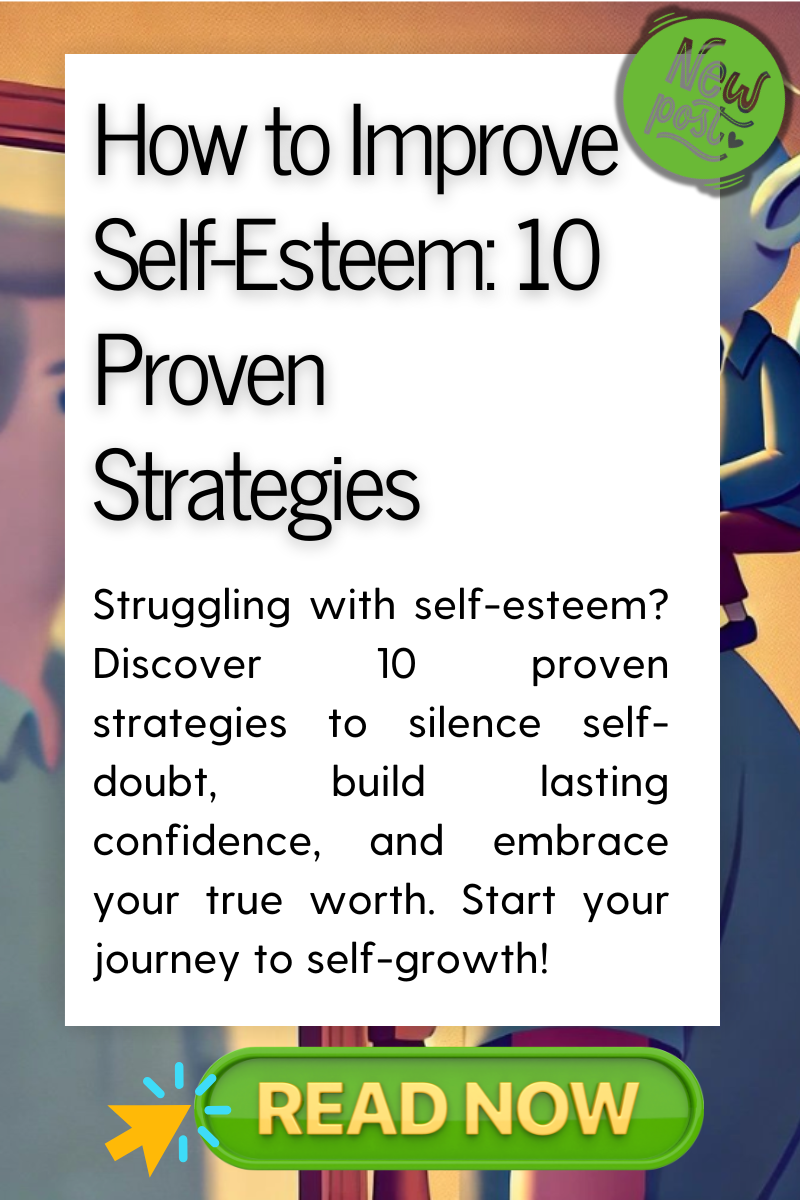Find a Certified Divorce Coach Near Me For Recovery
The end of a marriage doesn’t come with a manual. One day you’re navigating shared calendars and coffee orders. The next, you’re alone in a house that feels like someone else’s life.
There’s grief. Anger. Relief. Guilt. Sometimes all in the same hour. And while friends try to help, most don’t know what to say... or when to stop talking. Support often comes with awkward silences or unsolicited advice.
That’s where divorce recovery coaching can be a lifeline. Not therapy. Not a pep talk. A certified divorce coach offers practical, steady support through one of life’s most disorienting transitions.
Whether you’re still in the thick of legal paperwork or waking up in the quiet after it’s done, coaching helps you clarify what matters now... and take grounded, forward-moving steps.
This post walks you through what divorce recovery coaching actually is, how it works, and how to find the right coach near you. Someone who won’t try to rescue you, but will remind you that you can rise.
Because you don’t have to do this alone.
Why Divorce Recovery Coaching Matters
Divorce isn’t just the end of a relationship. It’s the unraveling of identity, security, and routine. You’re not just processing paperwork — you’re untangling a life.
This is where divorce recovery coaching becomes essential. A good coach doesn’t just help with logistics. They become part of your support system, walking with you through one of life’s most challenging transitions — with structure, care, and compassion.
Unlike therapy, which often focuses on the past, coaching guides you through the present into the future. It addresses your mental health while equipping you with tools to rebuild your inner strength.
Coaching also makes space for emotional healing — from shame, guilt, resentment, and the negative emotions that come in waves. It offers perspective and a plan, so the pain doesn’t turn into paralysis.
This isn’t self-help fluff. It’s a transformative journey, where every small win — making dinner for one, sleeping through the night, saying “no” with confidence — becomes part of your healing.
Divorce is one of the most misunderstood life transitions. But with emotional support and the right guide, you don’t just survive it. You start to become someone new.
What a Certified Divorce Coach Actually Does
A certified divorce coach doesn’t offer one-size-fits-all advice. This isn’t “vent and validate” coaching. It’s strategic, action-oriented, and rooted in emotional intelligence.
The role is part strategist, part mirror, part motivator. Through divorce coaching, you’ll get structure and clarity — not just around what happened, but where you’re going.
Think of it as a solution-focused brief approach. You’ll co-create practical steps to manage your day-to-day and shift your mindset in a sustainable way. The goal isn’t quick fixes — it’s traction.
Some coaches draw from tools found in cognitive behavioral therapy, mindfulness-based therapies, or other therapy types — not to treat mental illness, but to support your emotional well-being.
If you’re overwhelmed by negative feelings, frozen in fear, or unsure what to do next, a coach offers the right guidance at the best time. They’ll help you name what matters and choose the best way forward.
There are many types of therapy, and you don’t have to choose between coaching and counseling. A coach helps you ask better questions, set stronger boundaries, and begin healing — without staying stuck in analysis mode.
What You’re Really Navigating
The divorce process isn’t linear. There’s the shock of the split. Then the long grind — legal meetings, parenting plans, financial disclosures, and the dull ache of being in the middle of divorce while life continues around you.
But that’s only one side of divorce. The other side — the private one — is where heartbreak hurts in quiet, invisible ways.
You might be managing the intricacies of divorce like family law, custody schedules, and documents for court purposes, while also learning how to breathe through panic in the grocery store.
This is more than a legal dissolution. It’s a process of loss that affects your body, mind, and spirit. And it doesn’t end when the papers are signed.
That’s why coaching matters. It helps bridge the messy gap between the breakup and your post-divorce life. It offers a space for real conversations — the kind you can’t have with your ex or even your closest friend.
Group coaching and support groups can also offer healing, especially for those navigating this with kids or limited emotional resources.
Eventually, with the right support, you begin to build healthy boundaries and step into a powerful new beginning that’s rooted in truth — not reaction.
What to Expect in a Coaching Session
Walking into your first coaching session can feel like walking into a storm shelter — you’re not sure what’s inside, but you know you need refuge.
The first step is simple: honesty. You show up as you are. Broken. Numb. Angry. Or just confused. That’s enough.
A skilled coach creates a supportive space and helps you build a game plan for your healing — one based on practical strategies and actionable steps that don’t overwhelm you.
Maybe you start journaling again. Maybe you text less. Maybe you try a breathing exercise before court. Small shifts, big impact.
Some coaches offer structured formats like a week series, virtual coaching, or in-person group therapy, depending on your needs. Others may guide you through a custom educational program tailored to your stage of the journey.
The goal is to help you rediscover your authentic self and shape a future you choose, not one handed to you by heartbreak.
Good coaching isn’t fluff. It’s grounded in the same skills found in leadership development — clarity, communication, boundary-setting — only this time, the leader is you.
How to Find the Right Divorce Recovery Coach Near You
When searching “divorce recovery coach near me,” you’ll find directories, sponsored ads, and dozens of smiling faces. But how do you know who’s the good fit?
Start with credentials. Look for someone with real training — not just a vague certificate, but background in emotional resilience, trauma response, and communication tools. Some programs are rooted in evidence-based practices like widely-used talk therapy models. Others draw from places like Columbia University’s Teachers College or coaching programs with verified hours and ethics.
Ask about their years of experience. Request further information — case examples, client testimonials, or additional records of success. You’re not being demanding. You’re practicing discernment.
Be mindful of consent and data privacy. Any coach should explain their use of client info, technical storage, or any voluntary compliance related to data — especially for online sessions. Your story should never become part of someone’s internet service provider metadata trail.
Whether you work with someone local or opt for virtual coaching, trust the feel of the interaction. A compassionate approach is felt in tone, not just in taglines. You should walk away with new insight — even from a consult.
Benefits of Divorce Coaching: What Healing Can Look Like
The right coach doesn’t promise to take away your pain. But they do promise this: you won’t have to walk through it alone.
Over time, coaching becomes a bridge between who you were and who you’re becoming. You take next steps with intention. You start to see a brighter future not as a fantasy — but as a possibility worth reaching for.
Each session can uncover personal growth, reduce anxiety, and help you face the unknown with less fears and more stability. You discover the best way forward is one that’s yours.
There’s no single right approach. Some benefit from 1:1 work. Others join a support group or explore different types of coaching and specific therapy types that support healing. In places like Boca Raton, where in-person group therapy is the most popular option, clients find healing through shared experience.
Whether you’re ready for deep reflection or just trying to have one good time this week, divorce coaching offers a beacon of hope.
And as you begin the next chapter — with a coach, a journal, or a new morning routine — you’re not just surviving. You’re reclaiming the rest of your life.
Key Insights
Divorce breaks more than hearts. It unravels identity.
You might feel invisible after years of compromise — or lost in the deep hurt of divorce that no one else sees.
But healing isn’t about rushing into a “new you.” It’s about reclaiming a stronger sense of who you’ve always been… without the roles that blurred your reflection.
This isn’t reinvention. It’s return.
A sense of self rebuilt through tiny, persistent acts: saying no when you used to say yes. Asking for what you need. Letting joy in without apology.
Recovery coaching creates the space for that kind of reclamation. It’s not just emotional support — it’s women’s empowerment in the truest sense: a return to your own voice.
Whatever your past story, this next one is yours to write. And you don’t have to write it alone.
🖋 Journal prompt:
What’s one small thing I’ve done lately that felt like me — not a version of me shaped by survival or someone else’s expectations?
When You’re Ready for a Clearer Way Forward
You don’t need to face this alone — or figure it all out overnight.
Josh Dolin is a certified professional coach with years of experience supporting individuals through divorce, identity shifts, and emotional recovery.
Whether you’re navigating the fallout from a toxic relationship or trying to rebuild a life that feels like yours, you’ll work together to create a personalized action plan rooted in clarity, strength, and practical next steps.
No judgment. No pressure. Just real conversation and grounded support.
Because support during divorce isn’t a luxury. It’s the minimum standard every person deserves.
👉 Book your free consultation here — and take the next step toward a future that fits.
Join the Conversation
This post is one side of the story… the other side is yours. What came up for you?
Frequently Asked Questions About Divorce Coaching
1. What’s the difference between divorce coaches and therapists?
Divorce coaches focus on what’s next — helping you make decisions, build boundaries, and create a forward-focused plan. Therapists often look at the past for healing. Both can be helpful, but they serve different purposes.
2. Can coaching help if I’m a stay-at-home mom with no income?
Absolutely. If you’ve been a stay-at-home mom, a coach can help you navigate career re-entry, build confidence, and find structure. This stage of life requires extra support — not shame.
3. Does divorce coaching involve a specific therapy type?
While it’s not therapy, some coaches integrate techniques from specific therapy types (like CBT or mindfulness-based tools) to support your emotional clarity and daily resilience.
4. Can my coach talk to my lawyer or therapist if needed?
Only with your consent. Some clients benefit from third party coordination — especially when legal or mental health professionals are also involved in the healing process.
5. Is coaching covered by insurance?
Most coaching services are not included in insurance coverage plans, though some health spending accounts or employers may reimburse related services. It’s worth asking.
6. Do I need to live near my coach?
Nope. Many coaches (including Josh) offer virtual sessions that are just as effective. Location doesn’t limit the depth of support.
7. Is my information kept private during virtual sessions?
Yes. All sessions are confidential, and your data is never shared as part of your internet service provider or browser metadata. Your story is yours — and it stays that way.
8. How long does divorce recovery coaching usually last?
It depends. Some clients find clarity in a few sessions. Others continue longer-term for support as they rebuild. The pace is always yours.
9. What if I’m not emotional — just overwhelmed?
You don’t have to be in crisis to benefit. Many clients come in simply feeling stuck. Coaching helps you create space, strategy, and momentum.
10. How do I know Josh is the right coach for me?
Start with a free consultation. You’ll get a feel for the style, ask questions, and decide if it’s a good fit — no pressure, no sales pitch.
Questions About Divorce Coaching? You’re Not the Only One
These are the things people wonder in the quiet — after the papers are filed, when the friends go quiet, or before booking that first call.
👉 Still have questions or want to talk it through?
Josh Dolin offers free consultations with no pressure and no expectations. If it’s a fit, you’ll feel it.
Essential Reads for Healing & Moving Forward After Divorce
These books aren’t just about getting over it. They’re about coming back to life — and stepping into the power that was yours all along.
📖 Rebuilding: When Your Relationship Ends by Bruce Fisher
A time-tested guide that walks you through the psychological stages of divorce. Think of it as a practical roadmap for reclaiming your balance — especially when emotions are still raw. It’s gentle but clear, perfect for the early stages of healing.
📖 Untamed by Glennon Doyle
This one’s for anyone who forgot their own voice inside a long marriage. Untamed is a rallying cry for women’s empowerment — raw, funny, and unforgettable. It helps you peel away what’s performative and reconnect to what’s real.
📖 The Journey from Abandonment to Healing by Susan Anderson
If you’ve ever felt left, unseen, or emotionally discarded, this book gets it. It offers tools to process the pain and build emotional resilience — not just to survive the loss, but to live again.
📖 The New Rules of Divorce by Jacqueline Newman
Written by a top divorce attorney, this book gives you clarity on legal rights, parenting dynamics, and money decisions. It’s a must-read for the nuts and bolts — especially if you’re navigating court without much support.
📖 Radical Acceptance by Tara Brach
For those who need a quiet book that feels like a deep exhale. It blends mindfulness and compassion — perfect for building a spiritual and emotional foundation for your new life ahead.
These Books Help You Begin Again — One Page at a Time
Reading won’t solve everything… but the right words at the right moment can shift something inside you.
Whether you’re facing legal chaos, emotional exhaustion, or the long silence after a toxic split, these books offer clarity, company, and perspective.
Ready for deeper support?
Josh offers 1:1 coaching for real-life divorce recovery — no fluff, no pressure, just grounded next steps that fit your life.
Josh Dolin: Divorce Coaching That Rebuilds Real Life
Divorce doesn’t just split a relationship — it reshapes your days, your identity, and the way you move through the world. The emails, the silence, the emotional landmines, the well-meaning friends who say the wrong things… it’s a lot.
Coaching is where we turn all of that into something you can carry — one clear step, one honest conversation at a time.
I’m Josh Dolin, a certified life coach who supports people through divorce, co-parenting shifts, and the quiet aftermath most people don’t talk about. My role isn’t to fix you. It’s to stand beside you while we build what comes next — steady routines, scripts for difficult texts, boundaries that hold, and a real plan for life after “we.”
Here’s how I work: direct conversations, small changes that stick. We rebuild confidence without pretending everything’s fine. We name the hard stuff. We find your rhythm again — even if it’s one good hour at a time.
Coaching isn’t therapy or legal advice. If a family therapist, divorce mediator, or attorney is the first step, I’ll say so. But when the papers are signed and you’re left holding the pieces… coaching becomes the way forward. We protect your energy, repair your routines, and help you reconnect with the version of you that never left.
This isn’t about powering through. It’s about pacing yourself… with truth, care, and a quiet return to clarity.
If that’s the work you’re ready to do — gently, consistently, with a little help — I’m here.
👉 Book your free consultation and we’ll discuss the next few months… calmer mornings, fewer emotional spirals, and a new sense of direction that actually fits your life.
























